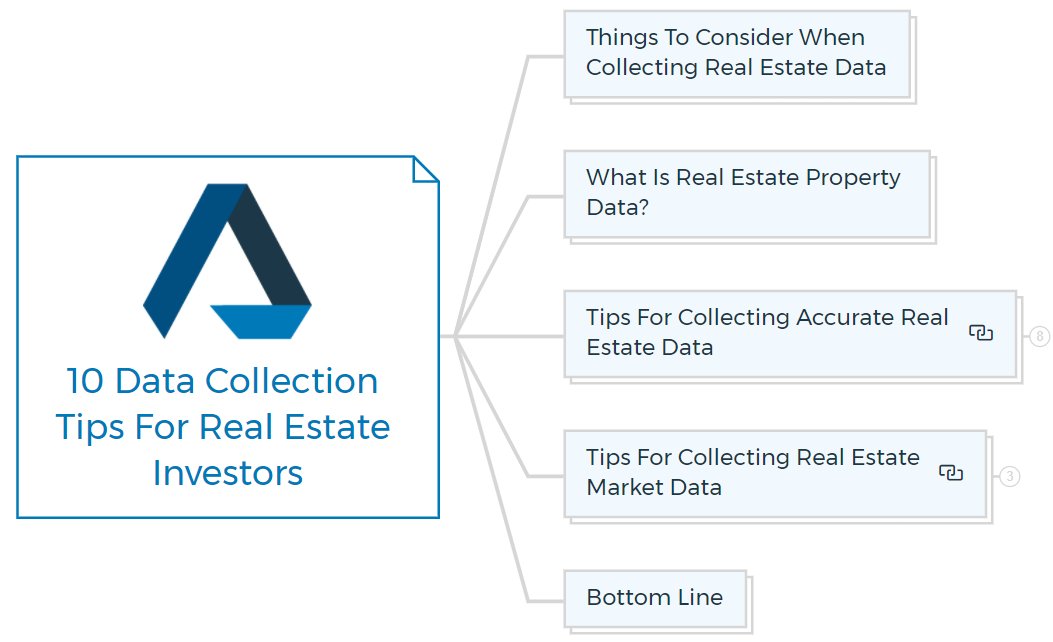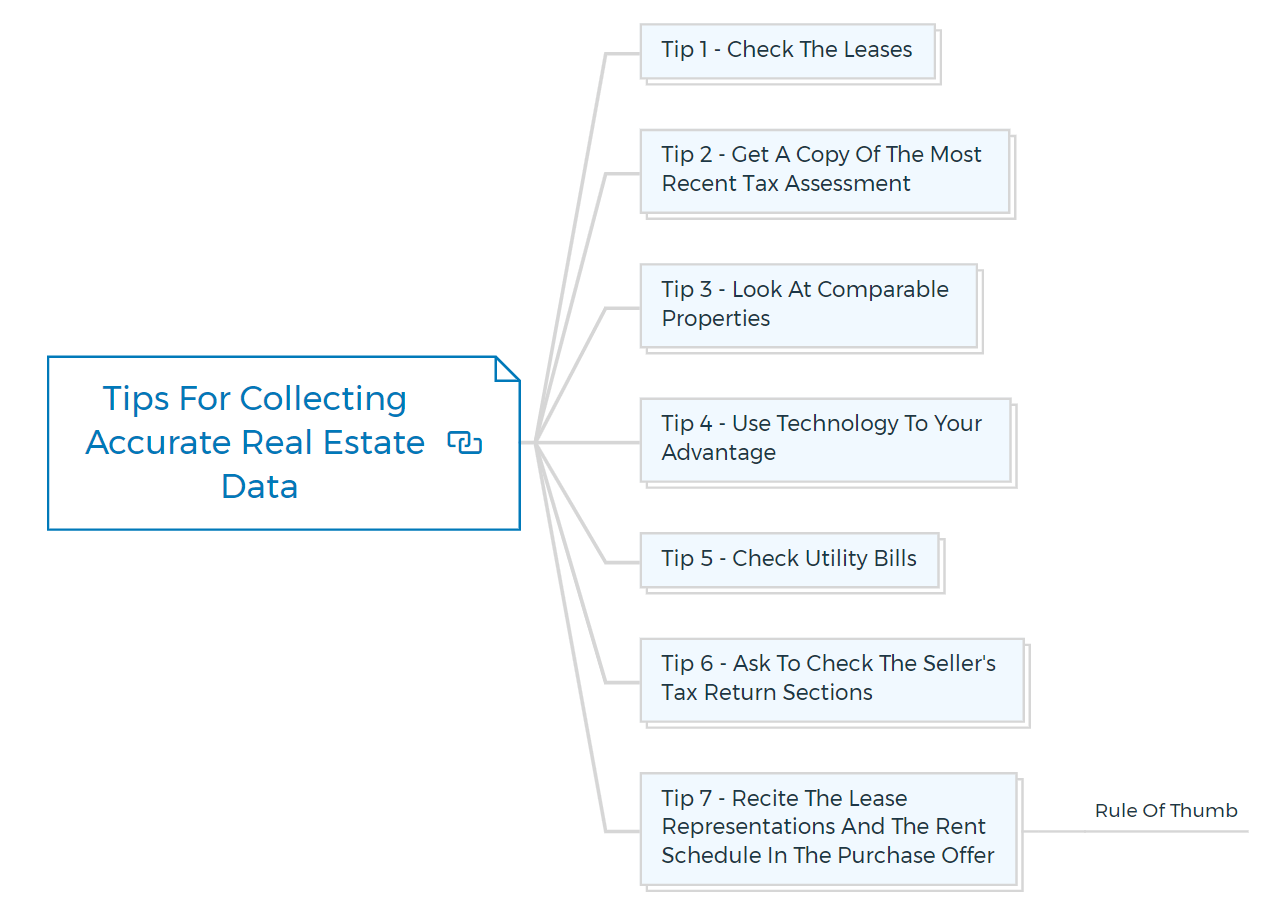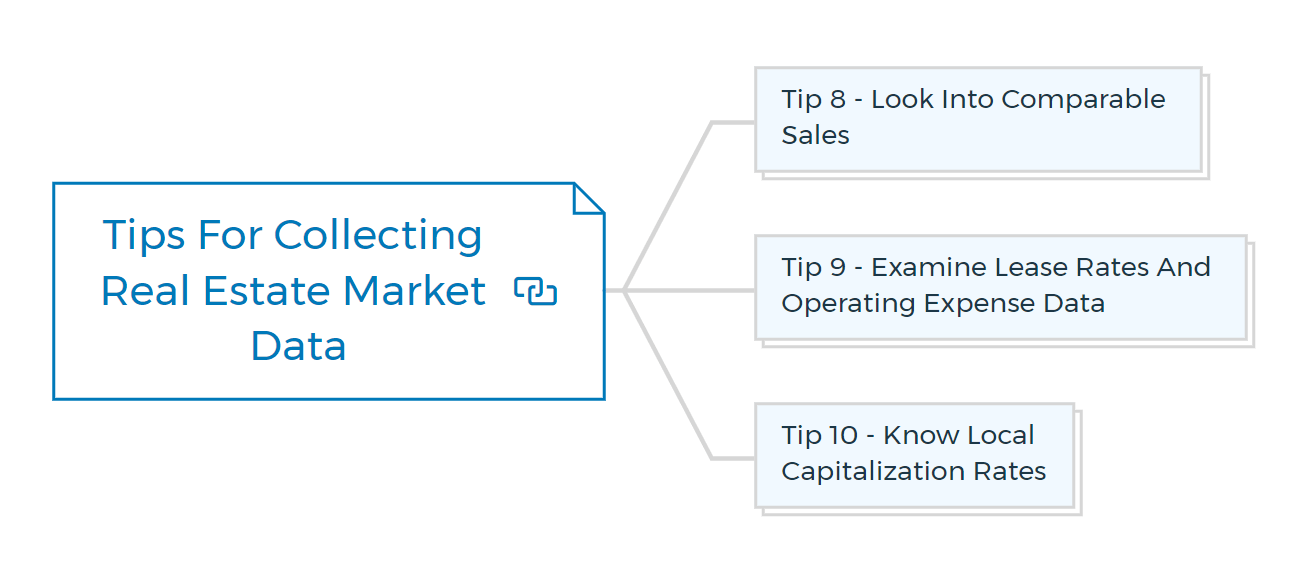If you're like most real estate investors, you're always looking for new and innovative ways to increase your return on investment. One of the best ways to do this is by collecting data about the properties you're interested in investing in.
This data can help you make more informed decisions about where to invest your money and give you an edge over the competition. Scroll down and explore some tips for collecting data about real estate investments.

Things to consider when collecting real estate data
- Make sure you're getting accurate data. It means verifying the source of information and making sure it's up-to-date.
- Be sure to collect data about comparable properties in the area. It will help you determine if the property you're interested in is a good deal.
- Track changes over time. It will help you see real estate trends in the market and help you with property value estimates.
- Keep all of your real estate data organized. It will make it easier to reference later and help you spot patterns more easily.
What is real estate property data?
Real estate property data is information about a specific piece of real estate income property, such as its worth, size, amenities, expenses, income, etc.
This data can be collected from various sources, including real estate listings, directly from sellers, or sometimes through the seller's agent.
Tips for collecting accurate real estate data
There are a few tips that you should follow when collecting real estate data for property investments.

Tip 1 - Check the leases
If you're looking at an income property, one of the most important real estate data you'll need to collect is information about the current tenants and their leases.
It would help if you always asked to see a copy of the lease agreement, and any other relevant documentation, before making an offer on a property.
It will give you a better idea of the property's potential income and potential risks.
Ask questions -
- Are the leases consistent with the seller's claims?
- What is the duration of each lease?
- Do tenants have the opportunity to renew their lease, and if so, at what cost?
The answers to these questions will impact your study of existing data and future projections for the property.
Tip 2 - Get a copy of the most recent tax assessment
Another important piece of real estate data to collect is the most recent tax assessment for the property.
This document will give you an idea of the property's value and how much you'll be responsible for in taxes. It is one way to confirm the accuracy of real estate property expenses.
It's important to get a copy of the most recent tax assessment because the value of income property can fluctuate greatly from year to year.
If you plan to invest in industrial real estate, ensure to know the risks and benefits of industrial property.
Tip 3 - Look at comparable properties
When considering an investment property, it's also a good idea to look at comparable properties. It will give you an idea of the property's value and how it compares to similar properties in terms of size, amenities, and location.
You can find comparable properties by searching online real estate listings or asking a real estate agent in the area.
Tip 4 - Use technology to your advantage
Several different software programs and online tools can help you collect and organize real estate data. These tools are designed specifically for real estate investors and can help you track properties, analyze market trends, and even find potential tenants.
Other software programs, such as Microsoft Excel, can collect and organize real estate data.
No matter what method you use to collect real estate data, the important thing is that you take the time to do it.
"The more data you have, the better informed you'll be when it comes time to make an investment decision."
Tip 5 - Check utility bills
When considering a commercial real estate property, checking utility bills will give you a good idea of the monthly expenses associated with the property.
Keep in mind that some tenants may be responsible for paying their utilities, while others may have them included in their lease agreement. Asking to see a copy of the most recent utility bill is a good way to estimate the monthly expenses accurately.
Calling most gas, electric, and water companies will provide useful information. If what you find corresponds to what the seller has informed you, you can reasonably expect other representations to be accurate.
Get The Edge Now!
Discover the transformative power of our FREE EDGE platform and
unlock a world of opportunities at no cost!

Your Real Estate Toolkit Awaits!
Free eBooks, Courses & Feasibility Suite Trial—Join Today!
✓ Unlimited FREE Trial: Experience the full power of our Feasibility Suite with hands-on demos
—explore without limits, no time pressure & without commitment or credit card!
✓ Learn from Success: Dive into real-life case studies for practical insights.
✓ Engage, Inquire, and Innovate: Ask questions, request features, and engage in lively discussions.
✓ Showcase Your Projects and Gain Insights: Share your projects and get personalised feedback.
✓ Free Resources Galore: Access a treasure trove of free resources,
eBooks & courses to keep you informed.
✓ Exclusive Training: Enjoy members-only training to sharpen your skills.
Tip 6 - Ask to check the seller's tax return sections
If you're considering an investment property, it's also a good idea to ask to see the seller's tax return. This document will give you an idea of the seller's income and any deductions they've taken for the property.
You can usually find this information in the "Schedule E" section of the tax return. Asking to see the seller's tax return is a good way to get an idea of their financial situation, and it can also help you verify the accuracy of their claims about the property.
Tip 7 - Recite the lease representations and the rent schedule in the purchase offer
When you're making an offer on a property, it's important to include a recitation of the lease representations and the rent schedule in the purchase agreement.
It will help ensure that your offer depends on accurate information, and it will also protect you if there are any discrepancies between the representations and the actual leases.
Including this information in the purchase agreement will also help to avoid any potential problems down the road.
Rule of thumb
Hire an attorney with expertise in real estate to purchase contracts. A smart lease or a tight purchase contract can save you money and grief.
Tips for collecting real estate market data
Below are some essential tips for collecting market-related real estate data.

Tip 8 - Real estate investors must look into comparable sales
One of the best ways to get an idea of a property's market value is to look at comparable sales, or "comps." Comps are properties that have recently sold in the same area as the property you're considering.
Looking at comps will give you an idea of the prices that properties are selling for in the current market. Your search may be more fruitful if you consider other aspects besides comparables.
It would help if you looked at the selling prices per square foot to spot a trend. You might also look at gross rent. You can get the gross rent multiplier by dividing the selling price by the gross rent.
These records are available online in most counties.
Tip 9 - Examine lease rates and operating expense data
Detailed real estate market analysis and forecasting require knowing what tenants are willing to pay for space and how much owners must pay for running costs.
This information is often available through the local chamber of commerce or the city's website. This data will give you an idea of the going rate for rent in the area and the typical expenses of owning a property.
Tip 10 - Know local capitalization rates
The capitalization, or "cap rate" measures the potential return on investment. You can calculate this by dividing the net operating income (NOI) by the purchase price.
For example, if a property has an NOI of $100,000 and sells for $500,000, the cap rate would be 20%.
The higher the cap rate, the higher the potential return on investment.
Real estate Investors use capitalization rates to compare residential and commercial real estate properties and decide which properties are a good investment.
Capitalization rates can vary depending on the location of a property, so it's important to know the average cap rate for the area you're considering real estate investing in.
By following these real estate data collection tips, you'll be well on your way to collecting accurate and useful data about real estate investments.
This data will help you make more correct decisions about where to invest your money and give you a significant advantage over the competition. So start collecting!
Bottom line
When collecting real estate market data, be sure to consider the source of information.
For example, if you're looking at data from the government, it's likely to be more accurate than data from local real estate agents. However, if you're looking at data from a local real estate agent, it's important to remember that they may have a vested interest in the property. It doesn't mean that their information is inaccurate, but it's something to consider.
No matter what real estate data sources you're using, it's always a good idea to verify the accuracy of the information before making any decisions. Collecting data is an important part of any real estate investment decision.
By following the tips above, you can be sure that you're collecting accurate and relevant data that will help you make the best possible investment decision.
FAQs

